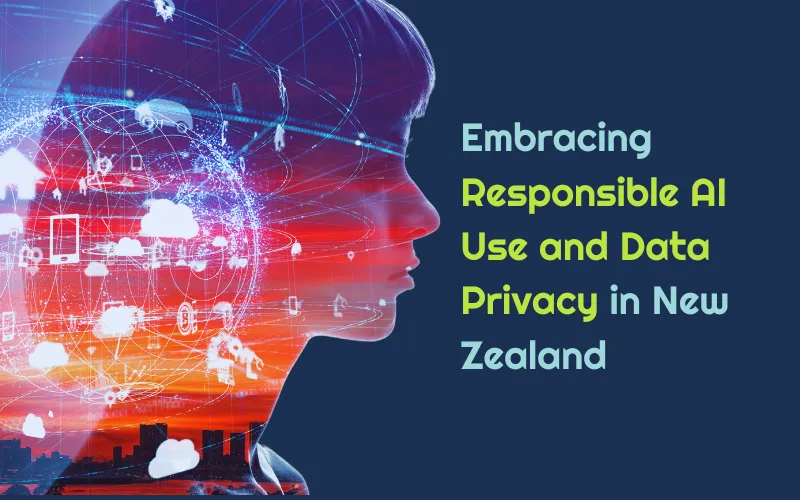The rapid development of Generative Artificial Intelligence (Gen AI) and Large Language Models (LLMs) has opened up a world of possibilities to anyone interested in the technology. These highly accessible technologies have the potential to optimise operations, streamline decision-making, and increase efficiency across various sectors. The powerful capabilities of Gen AI and LLMs come with significant responsibility, particularly in terms of data privacy and ethical considerations. When should the importance of responsible Gen AI use, focusing on the ethical implications of privacy be discussed?
A New Ethical Landscape
As Gen AI becomes more integrated into daily life, it is crucial for organisations to adapt their practices to protect individual privacy rights. Employing responsible Gen AI means considering the legal, ethical, and social implications of the technology. Clear guidelines and procedures should be drafted to ensure that systems are transparent, accountable, and adhere to privacy regulations such as the New Zealand Privacy Act. Questions around how the technology is to be used and its best use case should be the start of this conversation – it’s clear that many uses of Gen AI are for fun, gaming or reducing workload, but the more sinister applications of deepfake, university assignment writing and even research papers show the less ethical side of the coin.
![]()
Balancing Gen AI Benefits with Privacy Concerns
Organisations must strive to balance the potential benefits of Gen AI with the need to protect user privacy. This can be achieved by incorporating privacy-by-design principles in development, ensuring that privacy is a fundamental consideration from the outset. Risk assessments and regular audits should be conducted to identify potential vulnerabilities, and AI systems should be designed to minimise data collection and storage to reduce the risk of misuse or unauthorised access.
Some recent scares of the use of GPT4 were its potential to ‘remember’ what it’s asked, and the risk of that knowledge entering its training data set. While there is no evidence to suggest this is true at the moment (OpenAI says it cannot access other user’s questions and input prompts, nor is it connected to the live internet) it’s a natural progression for the tool. Other Gen AI tech such as Clearview AI, does have access to live information and there are concerns that the risk of its use in the public domain could lead to stalking, blackmail and more. Its trial in New Zealand was unsuccessful but remained in use for some time despite fines from the UK and Australian Information Commissions.

The Role of the organisation
Collaboration amongst management, developers, and security staff is essential in promoting responsible Gen AI use and data privacy. Knowledge from the top down is imperative to making sure all staff members that use or work with Gen AI, know the risks and procedures when it comes to data privacy. Management and CISOs should foster a culture of ethical AI use, emphasising the importance of privacy and awareness.
Empowering Employees and Stakeholders
To build trust in AI systems, organisations must empower their employees and stakeholders to understand and engage with the technology. This can be achieved by providing education and training opportunities, fostering open communication channels, and ensuring that employees have the necessary resources to make informed decisions about responsible Gen AI and privacy matters. Encouraging feedback and fostering an environment of continuous learning can help organisations stay agile and adapt to the evolving ethical landscape.
Want to know more on the topic and how to empower your employees to make better cyber security decisions – talk to our team today.


